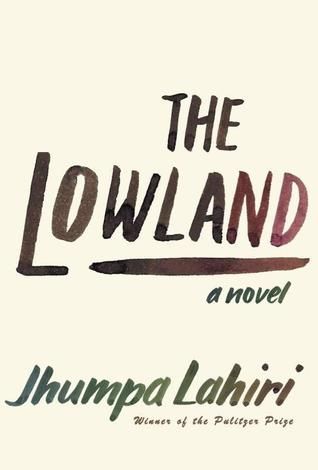“The Lowland” by Jhumpa Lahiri: Two Reviews
Two review of Jhumpa Lahiri's "The Lowland."
By Anita Felicelli, Urmila SeshagiriOctober 9, 2013

THE LOWLAND is a breathtaking achievement, taking into account four generations and almost 70 years. While certain readers, myself included, may wish for more of Udayan's perspective — we so infrequently see anything of India's dissenters or revolutionaries in realistic literary fiction — it is hard to imagine the thorough application of Lahiri's delicate, observant, American prose to a charismatic revolutionary abroad. Or even to certain conventional axes of Indian social conflict — caste, religion, language. We never learn what the brothers' caste is, for example, even though caste in the 1960s was a preoccupation and serious point of division (and is still in some circles). We know that they are likely middle-class, that their father was a railroad cleric, a government employee with little sympathy for radicalism... [More]
¤
JHUMPA LAHIRI is not an immigrant writer. Nor is she a writer of cosmopolitan, international, or global fiction. She is an American realist. In the manner of John Updike, Philip Roth, and Jonathan Franzen — writers with whom she is never associated — Lahiri’s magisterial canvases portray the elusive, vexed promises that comprise the mythos of the United States. But since her Pulitzer-winning debut Interpreter of Maladies, Lahiri’s multinational biography has dominated the reception of her fiction and obscured what is a distinctly American literary sensibility. The British-born, Indian-American writer is almost inevitably subsumed into an axis of immigrant-minority-ethnic-postcolonial writers such as Junot Díaz, Chitra Banerjee Divakaruni, and Zadie Smith. Accordingly, critics continue to overlook Lahiri’s most significant literary achievement: a New England regionalism that contains the consciousness of a nation. In her new novel The Lowland, a multigenerational family story that unfolds in counterpoint between India and the United States, Lahiri emphasizes neither the immigrant’s cultural displacement nor a contest of values between old world and new. Rather, this exquisitely written novel... [More]
¤
LARB Contributors
Anita Felicelli is the author of Chimerica: A Novel and the short story collection Love Songs for a Lost Continent, which won the 2016 Mary Roberts Rinehart Award. Her short stories have most recently appeared in Air/Light, Alta, Midnight Breakfast, and The Massachusetts Review. Her nonfiction has appeared in the Los Angeles Review of Books, San Francisco Chronicle, The New York Times’s Modern Love, Slate, Salon, and Catapult. She lives in the San Francisco Bay Area with her family.
Urmila Seshagiri is associate professor of English at the University of Tennessee. The author of Race and the Modernist Imagination (Cornell, 2010), she is completing a book about the complex legacy of modernist aesthetics titled Still Shocking: Modernism and Fiction in the 21st Century. Her scholarly edition of Virginia Woolf’s memoir Sketch of the Past is forthcoming from Cornell University Press. She is the Out of the Archives Editor for Feminist Modernist Studies.
LARB Staff Recommendations
“The Moment” in Jhumpa Lahiri’s “The Lowland”
The history at the beginning of The Lowland is not a flaw, it is centrally important to the novel.
Jhumpa Lahiri’s Real America: On “The Lowland”
Urmila Seshagiri review's Jhumpa Lahiri’s The Lowland (Knopf, 2013).
Did you know LARB is a reader-supported nonprofit?
LARB publishes daily without a paywall as part of our mission to make rigorous, incisive, and engaging writing on every aspect of literature, culture, and the arts freely accessible to the public. Help us continue this work with your tax-deductible donation today!